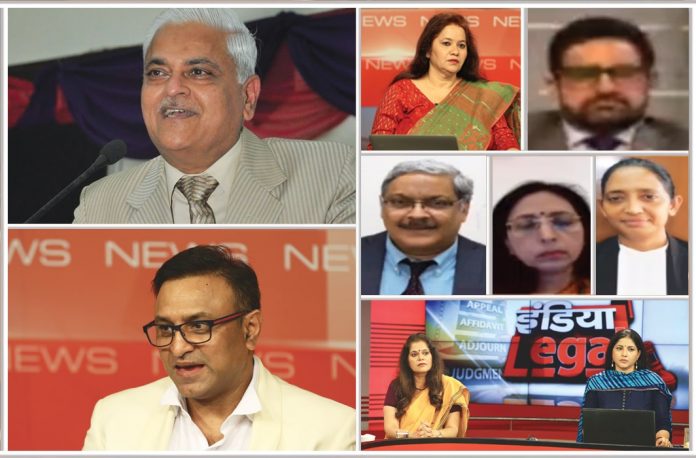The pitiable plight of migrants after the sudden lockdown by the government has caught the attention of the nation. The fact that there was a delay in the Supreme Court taking up their issues has also not gone unnoticed. Former Supreme Court judge Justice Anil R Dave stated that the Supreme Court had acted on the issue of migrants, but yes, there was a delay. People should have been informed beforehand that the lockdown would go on for long and they should have been given time to get back to their hometowns, he said. On being asked how it could be ensured that these situations don’t get repeated, he said that planning and proper arrangements can be done beforehand.
Justice Dave was a special guest at a webinar held on June 4, organised by APN News, India Legal and The International Centre for Alternative Dispute Resolution (ICADR). The subject of the webinar, which was part of the Legal Awareness Series, was—“Migrant workers: Challenges and the way forward”. The programme was moderated by Rajshri Rai, Editor-in-Chief, APN News and Kiran Bhardwaj, advocate and member, Governing Council, ICADR. Another special guest was Jyotika Kalra, member, National Human Rights Commission (NHRC). The webinar was addressed by other distinguished speakers as well.
According to Dr BN Nanda, former Principal Labour and Employment Adviser, Ministry of Labour, the safeguards to protect the interests of migrants were available, but the problem was non-implementation. These safeguards can only kick in after the proper registration of these migrants is done and due procedures followed.
Pradeep Rai, senior advocate, Supreme Court, stated that these workers should not be called migrants as they were Indian citizens and from our states. He said the main reason for the government’s failure on the migrants issue was its inability to assure them that they would be taken care of. Even while measures were being taken, they weren’t reaching them. He agreed with Justice Dave and said that what was being done now was just a post-mortem, but it would help ensure that it didn’t happen again. The fact that these migrants were stopped at the borders, not given a place to stay, food to eat or allowed to go home showed a complete failure of the machinery, he added. There was complete miscommunication, mistrust and no confidence-building.
Jyotika Kalra said that the apex court had given orders regarding migrants on March 31 when a petition was filed by lawyer Alakh Alok Srivastava. This was followed by a petition by social activist Harsh Mander. The government had also directed employers to pay full wages to their employees and this was reiterated by the home ministry. Therefore, it was known that the situation might get difficult. She too said the term migrant was demeaning and unfair.
Rajshri Rai said that though notifications were issued and steps taken for migrants, the actual situation was different and this was evident from the photos taken of them. “Should the Human Rights Commission not have done something to ensure that the human rights of these migrants were protected?” she asked. Kalra responded by stating that the NHRC had paid attention to the issues and complaints but had its limits as well. She agreed that the current situation of migrants was a failure on everyone’s part, but said that steps need to be taken for the future. This included registration of labourers so that they could avail of benefits available to them as their right.
Dr Anmol Rattan Sidhu, senior advocate, Punjab & Haryana High Court and founding member of the Governing Council, ICADR, said that migrants weren’t the only people affected as other classes of labourers too had been hit. The labourers who went back to their home states, he said, would not be able to return immediately to work and this problem would continue.
Alka Agrawal, member, Supreme Court Bar Association and Additional Advocate General, Haryana, said that it was important for the migrants to get back to work and it was the responsibility of even the local authorities and the NHRC to ensure their employment so that they can sustain themselves.
Shobha Gupta, advocate, NHRC, differed with the other speakers about using the term migrants. She said: “Yes, they are undoubtedly migrants as they migrate from one state to the other for work. We have failed as a country and as citizens. The fact remains that they were walking cluelessly and dying on the roads. Also, this is not a post-mortem at all as even today there are labourers walking back home on empty stomachs.”
Justice Dave said what had happened had happened and it was time to go forward. “Even today, state transport buses can take people back home if they are on the road. I don’t know why the government isn’t doing that. We should do what needs to be done instead of thinking about the past.” As Rajshri Rai, quoting a famous couplet, said: “Beeti Tahi Bisar De, Aage Ki Sudh Le (Forget what happened in the past, look to the future.)”


